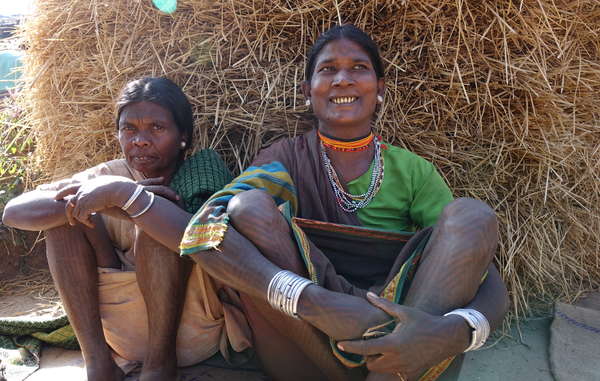
by Deep Green Resistance News Service | Mar 15, 2018 | Colonialism & Conquest
Featured image: Baiga women threatened with illegal eviction, Achanakmar Tiger Reserve. The villagers are determined to stay and say they don’t want to leave their forest home. © Survival International
by Survival International
Hundreds of Baiga people from the area that inspired Kipling’s The Jungle Book are rallying to oppose the authorities’ attempts to evict them from the forests that they have lived in and managed since time immemorial.
Baiga tribespeople are joining forces from over 70 different villages in an area of 1,500 square kilometres. The protests have been sparked by official efforts to evict two Baiga communities from a wildlife “corridor.” Dozens of neighboring Baiga communities are now terrified they will be next, as they face poverty, exploitation and misery if forced from their homes.
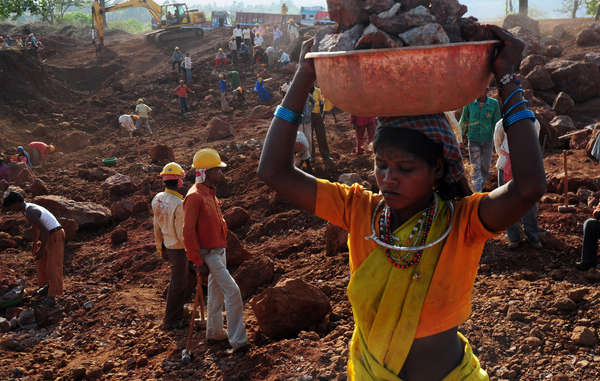
The fate that could await many Baiga threatened with illegal eviction: a Baiga woman works for a pittance in a bauxite mine. © Sayantan Bera/Survival
The Baiga are particularly worried by the two upcoming evictions, as both state authorities and the World Wildlife Fund (WWF) promised that evictions would not take place in the “corridor” areas, which run between the protected nature reserves.
By law, any resettlements of tribal people must be voluntary, even for those living in designated conservation areas. However Baiga people report threats, intimidation and violence until they have no choice but to leave their homes.
Baiga elder, Bhardan Singh told Survival International: “The forest guards beat me until I fell from the tree. I split my hip bone and couldn’t stand. I crawled to the edge of the park. The guards just left me and walked away.”
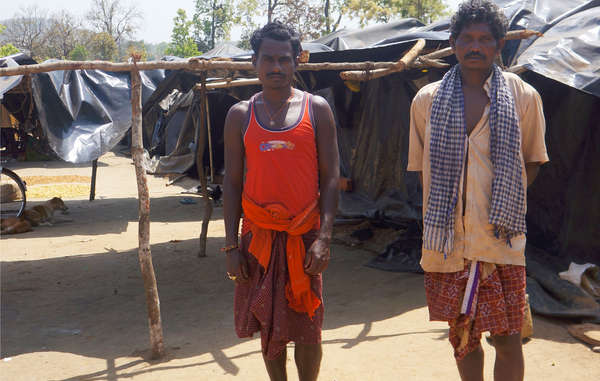
These Khadia tribespeople were evicted from a tiger reserve and forced to live for months under plastic sheets. Promises of “compensation” are rarely fulfilled. © Survival
This weekend’s protest is a local flashpoint in an ongoing national issue. Tribal peoples living in tiger reserves across India are being forced to leave their ancestral homelands in the name of tiger conservation. However, tiger numbers have increased rapidly in the first reserve in India where a tribe won the right to stay on their land, showing people and tigers can flourish alongside one another.
Survival International, the global movement for tribal peoples’ rights, launched a tourist boycott in November last year, urging visitors to India not to visit any of India’s tiger reserves until the Indian tiger authority respects tribal peoples’ rights to live in and protect their forests.
Survival Director Stephen Corry said: “These evictions, both inside and outside the tiger reserves, are totally unjustified, as well as illegal. Not only do they destroy the lives of the people forced from their homes, but they don’t help the tigers either. The authorities and WWF promised there would be no evictions – as so often in the past, such promises have proven worthless.”
Background briefing
– Baiga means “medicine man.” Baiga people are known for their distinctive tattoos, and for their very close relationship to their environment.
– Tribal people were evicted from Similipal tiger reserve in 2013, and were soon after found living in dire conditions under plastic sheets.
– Many Baiga were evicted from the nearby Kanha tiger reserve in 2014. They received no land, houses, or support but were supposed to find land to buy with their compensation money, an alien concept for those who’d lived all their lives in the forest. They told Survival: “We got some money, but we are lost – wandering in search of land. Here there is only sadness. We need the jungle.”
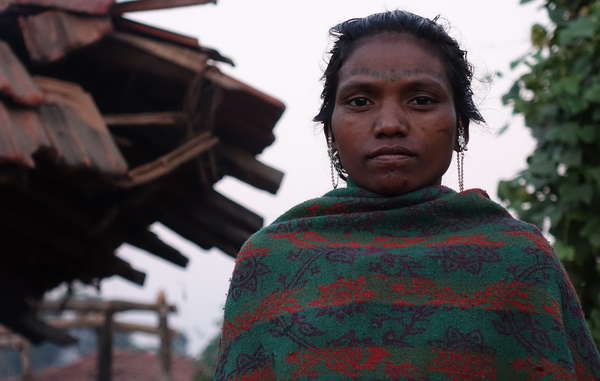
by Deep Green Resistance News Service | Jan 4, 2018 | Colonialism & Conquest
Featured image: This Baiga woman was evicted from Kanha tiger reserve. © Survival International
by Survival International
India’s National Tiger Conservation Authority (NTCA) is coming under increasing pressure over its illegal order banning the recognition of tribal forest rights in tiger reserves. The order prompted Survival International to launch a global tourism boycott in November.
Information released to Survival has revealed that India’s tribal peoples’ Commission (officially called the National Commission for Scheduled Tribes (NCST)) has directly challenged the NTCA’s order in private meetings in Delhi. The Commission demanded that the NTCA suspend any planned evictions of tribal peoples, who have been dependent on and managed their forests for millennia.
After demanding to meet with the NTCA, the Commission argued that the order violates India’s Forest Rights Act – which guarantees tribal peoples’ rights to their forests. It was intended to address the “historical injustice” against tribes and other “traditional forest dwellers.”
In November, representatives of tribal communities met with many human rights and environment activists in Delhi, amidst mounting concern over the NTCA order.

A Baiga woman works for daily wages on Vedanta’s Bodai-Daldali bauxite mine, Chhattisgarh © Sayantan Bera/Survival
J.K. Thimma, a Jenu Keruba man who lives in Nagarhole National Park, and was present at the meeting, said: “The NTCA order is an attack against our culture and our tradition. This is anti-Constitutional and the NTCA have no right to stop the implementation of an Act passed by the Parliament… This is denial for our existence. The order needs to be withdrawn as soon as possible, it is creating fear among all of us.”
Another tribal man, Shankar Barde from Tadoba Tiger Reserve, said: “After years of restrictions and hardships, finally we were told early this year by the district administration that our rights have been recognized. We were excited… but then we were told by the district administration that NTCA order does not allow our rights to be recognized. This is a complete injustice. Dozens of outsiders are earning large sums of money in our backyard while we struggle to even live with dignity.”
Indian law specifically states that the NTCA does not have the power to “interfere with or affect the rights of local people, particularly… tribes.” Tribal rights are under the jurisdiction of the Ministry of Tribal Affairs.
Despite this, conservation authorities have violated the rights of tribal peoples. Across India, tribal peoples endure harassment, coercion, and illegal eviction from their ancestral homelands in the name of conservation.
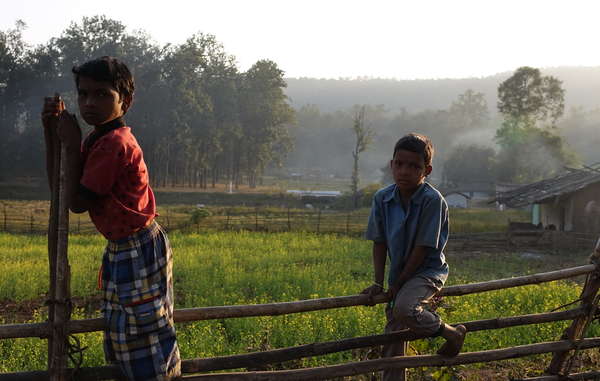
Baiga children. Their village was notified with eviction. Achanakmar Tiger Reserve. © Survival
After eviction, tribal people face lives of poverty and exclusion on the fringes of Indian society. Meanwhile, huge numbers of tourists are then invited into tiger reserves, disrupting tiger habitats and making tigers more vulnerable to poaching.
Survival International is leading the global fight against injustice and abuse in the name of protecting wildlife.
Survival’s Director Stephen Corry said: “This order is an attack on India’s tribal peoples – it’s also illegal. Polluting and destructive industries such as uranium mining and tourism are apparently welcome in tiger reserves, but conservationists in India remain determined to kick tribal people off their land. It’s time they partnered with the best conservationists and guardians of the natural world, and stopped persecuting them. Tribal peoples know their land and its animals better than the conservationists.”

by Deep Green Resistance News Service | Oct 17, 2017 | Colonialism & Conquest
Featured image: Still from video showing Jarawa girls forced to dance for tourists along the illegal Andaman Trunk Road. © Anon
by Survival International
Tour operators in India’s Andaman Islands are selling “human safaris” to the reserve of a recently-contacted tribe, despite government promises to ban the practice.
Tourists travel along a road through the Jarawa’s forest, treating tribespeople like animals in a safari park. In 2013, the Andaman government promised to open a sea route to the Islands’ most popular tourist destinations, which would stop tourists needing to drive through the Jarawa’s reserve. The sea route has recently become operational.
But despite the authorities’ commitment to ensuring all tourists would have to use the sea route, very few currently do, and the market in human safaris along the road is flourishing.
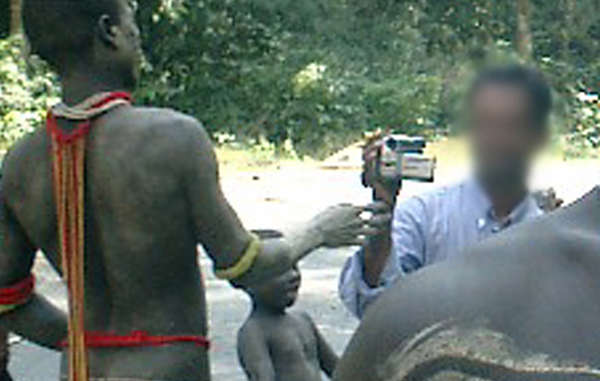
A tourist films a Jarawa man up close on the road. Campaigners have raised deep concerns about the dangerous, degrading and exploitative nature of tribal tourism. © Survival
One tour company, Tropical Andamans, states that: “The Famous Jarawa creek is a lonely planet in itself. It is the dwelling place of the oldest tribes found in these islands. The tribes known as Jarawas, are aloof from the civilized world. They are the wonder of the modern world, for they feed on raw pigs, fruits, and vegetables. They don’t speak any language known to general public. Their pitch black skin and red eyes will leave you dazzled in case you happen to meet them.”
A tourist website, Flywidus, offers a glimpse of “primitive tribals” to tourists driving through the Jarawa reserve, and another, Holidify, describe the Jarawa as a “major attraction” and claims that the Jarawa “love the high of specific drugs, one of it being tobacco.”
In 2002 India’s Supreme Court ordered the road closed, but it has remained open continuously despite pressure from human rights campaigners.
Survival International led a global campaign against the human safaris, calling for a boycott of the Andaman tourist industry until they came to an end. Nearly 17,000 people from around the world pledged not to holiday in the islands in protest.
In a recent statement, the Andaman government said that the road: “…shall remain open for the use of both islanders and the tourists as no decision has been taken by this Administration for closing it down for the tourists. However, the tourists have been advised to avail boat service.”
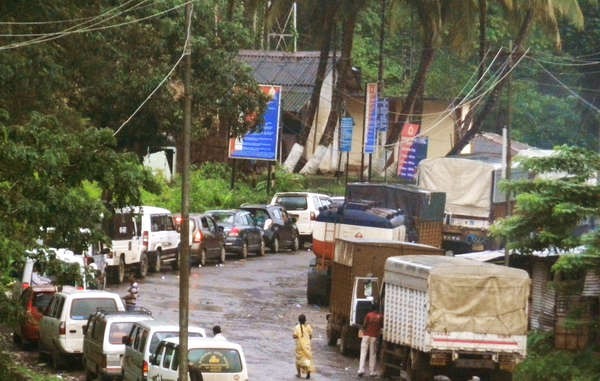
Tourist vehicles queuing to enter the Jarawa tribal reserve. © www.andamanchronicle.net /Survival
Background briefing
– The road brings a daily invasion of hundreds of tourists into the heart of the Jarawa reserve. The promotion by tour operators of sightings of the Jarawa is illegal in the islands, but this is not being enforced.
– The UN, India’s Minister for Tribal Affairs and members of the European Parliament have all condemned the practice.
– One tourist described his trip: “The journey through tribal reserve was like a safari ride as we were going amidst dense tropical rainforest and looking for wild animals, Jarawa tribals to be specific.”
– The Jarawa, like all recently contacted peoples, face catastrophe unless their land is protected.
– The human safaris are also dangerous – one Jarawa boy lost his arm after tourists threw food at him from a moving vehicle. They sparked global outcry in 2012 after footage emerged of a tourist forcing several Jarawa girls to dance.
– Tribal peoples’ land rights have been part of international law for generations. The key to their survival and prosperity is to ensure their land remains under their control.
– All uncontacted and recently contacted tribal peoples face catastrophe unless their land is protected. Survival International is leading the global fight to secure their land for them, and to give them the chance to determine their own futures.
Survival’s Director Stephen Corry said: “The new sea ferry was supposed to stop tour buses driving through Jarawa land, and so put an end to these dangerous and disgusting human safaris. But the government wants it to be optional which defeats the purpose entirely. Tourist companies are still selling the safaris and profiting from the exploitation of tribal people. Ethical tourists should boycott the islands until this is stopped.”
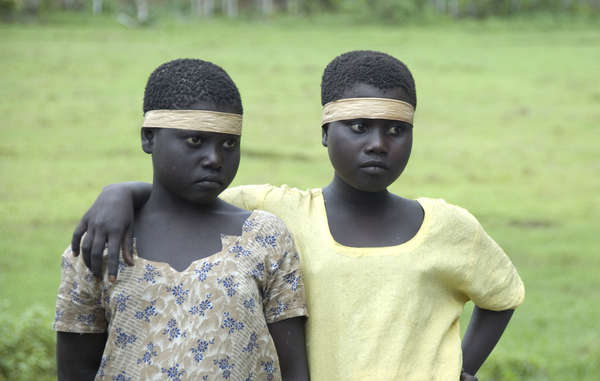
by Deep Green Resistance News Service | Sep 19, 2017 | Indigenous Autonomy
Featured image: Human safaris have risked exposing the Jarawa to diseases to which they have no immunity. © Survival
by Survival International
Notorious “human safaris” in India’s Andaman Islands may soon stop, after the authorities announced that a new sea route around the islands will soon open.
The new route will keep tourists off the infamous Andaman Trunk Road, which was built illegally through the forests of the isolated Jarawa tribe.
The road brings a daily invasion of hundreds of tourists into the heart of the Jarawa reserve, who treat the Jarawa like animals in a safari park.
One tourist described his trip: “The journey through tribal reserve was like a safari ride as we were going amidst dense tropical rainforest and looking for wild animals, Jarawa tribals to be specific.”
The Jarawa, like all recently contacted peoples, face catastrophe unless their land is protected.
The human safaris are also dangerous – one Jarawa boy lost his arm after tourists threw food at him from a moving vehicle.
In 2002 India’s Supreme Court ordered the road closed, but it has remained open.
Survival International led a global campaign against the human safaris, calling for a boycott of the Andaman tourist industry until they came to an end. Nearly 17,000 people from around the world pledged not to holiday in the islands in protest.
The boycott will be called off as soon as the Andaman government agrees to ensure that tourists are no longer able to use the road.
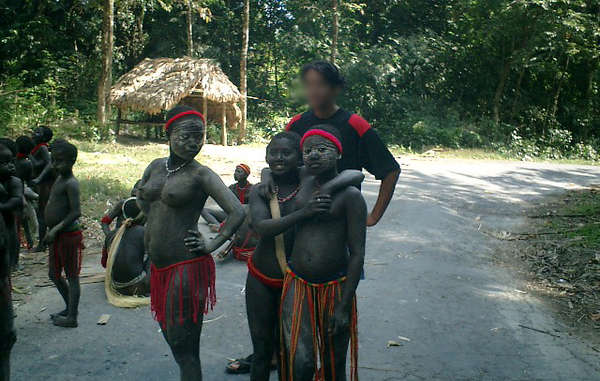
A tourist poses with a group of Jarawa. © Mauricio Cordova / Survival International 2008
Background briefing
– In 2012, shocking footage emerged of Jarawa girls being made to dance at the side of the road, during a human safari. This led to a global outcry against the dehumanizing use of tribal people as tourist exhibits.
– The Jarawa are one of the tribes indigenous to the Andaman islands. They live as hunter gatherers, and chose to reject contact with mainstream Indian society until 1998. Several other Andamanese tribes were wiped out following British colonization of the islands in the 19th century.
– In 1999 and 2006, the Jarawa suffered outbreaks of measles – a disease which has devastated many recently contacted tribes. and which is often a consequence of forced contact.
-Tourism is a major industry in the Andaman islands. The new sea route will be used to access the north of the islands and attractions like the limestone caves and mud volcano at Baratang without tourists intruding into the land of the Jarawa.
– The Islands’ Lieutenant-Governor, Professor Mukhi, announced recently that the sea route will be quicker and more comfortable than the current journey by road.

Still from video showing Jarawa girls forced to dance during a human safari. © Anon
Survival’s Director Stephen Corry said: “Treating the Jarawa as a tourist spectacle was a disgusting practice – it also put their lives in danger. It’s more than time for the human safaris to end. If this sea route can do that, then we welcome it. If not, we’ll carry on campaigning until the Jarawa’s right to determine their own futures and stop being harassed by tourists is secure.”
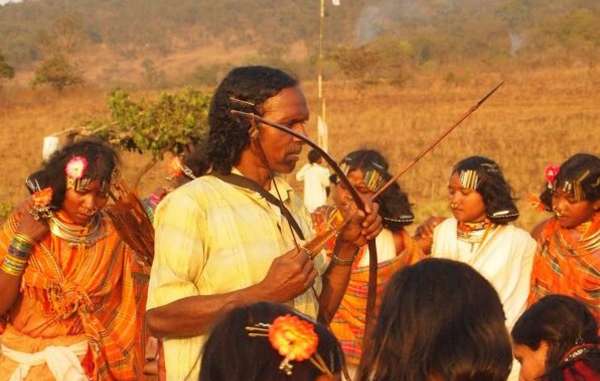
by Deep Green Resistance News Service | Jun 28, 2017 | Colonialism & Conquest
Featured image: Bari Pidikaka, Dongria activist, who died in police custody after being detained in 2015. © Survival International
by Survival International
A leader of a tribe in India, which made headlines around the world when it won a David and Goliath battle against a British mining corporation, has died in police custody – following a violent police campaign of harassment and intimidation against activists.
Bari Pidikaka of the Dongria Kondh tribe was arrested and detained on his way back from a protest in October 2015, and died this week.
The Dongria from central India report systematic “intimidation, abduction and wrongful incarceration” of their leaders by state police, who they claim are acting to “further the interests” of Vedanta Resources, a British-based mining company.
Local police also arrested Kuni Sikaka, a 20-year-old Dongria activist and relative of the two most prominent Dongria leaders. She was dragged out of her house at midnight, despite the fact that police had no warrant.
She was then paraded in front of officials and local media as a “surrendered Maoist [member of an armed resistance group]” despite there being no evidence to support this.
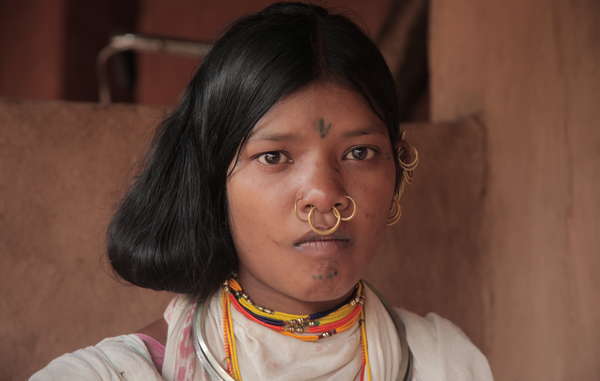
Kuni Sikaka has been arrested and paraded in front of the media. She is an activist and a relative of two prominent Dongria leaders. © Video Republic
Other members of the tribe have also faced brutal harassment. Activist Dasuru Kadraka has been detained without trial for over 12 months. Dongria have been beaten, and tortured with electric wires to force them to stop campaigning for their rights.
With the support of local officials, Vedanta has previously attempted to pressure the tribe into allowing bauxite mining on their ancestral land in the Niyamgiri Hills. In a historic referendum in 2013, the tribe unanimously rejected the proposal.

Since resisting Vedanta’s plan to mine their land, many Dongria, including Drimbilli (pictured here) and Kuni, are being systematically arrested and accused of being Maoist guerrillas. © Video Republic
But the Dongria fear that, as long as Vedanta operates its refinery at the foot of the hills, the threat of mining remains. Those detained claim that police demanded that they stop protesting against the mine.
In an open letter to the President of India, over 100 independent Indian organizations said: “In the last 2-3 years, several Dongria Kondh youth and elders have been arrested, harassed, and killed, and one has committed suicide after repeated harassment and alleged torture by security forces. In none of these cases have [officials] been able to produce evidence linking them to so-called Maoists.”
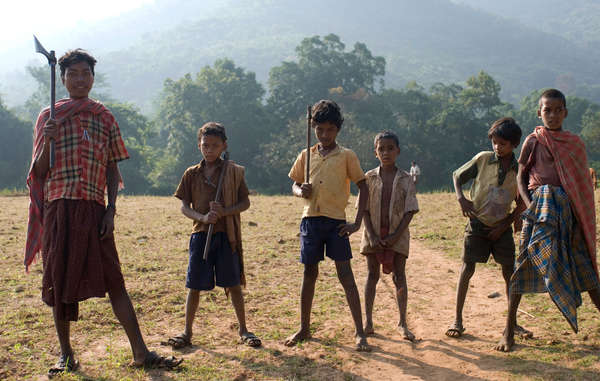
Vedanta Resources continues to operate a refinery close to the Dongria’s hills, raising concerns that they have not yet abandoned their ambitions for mining in the area. © Survival
Dasuru Kadraka said: “I was arrested and taken to the superintendent of police’s office. There I was tortured with my hands tied and electric wires attached to my ears and electric shock given to me, to force me to surrender… and to make me leave the Save Niyamgiri movement. But I refused… The movement is my life, I will never stop protecting the Niyamgiri hills and forests.”
The Dongria Kondh’s right to their ancestral land has been recognized in Indian and international law. Survival International led the global campaign to protect their land, and will continue to fight for the Dongria to be allowed to determine their own futures without harassment.
Survival’s Director Stephen Corry said: “It’s now clear that there’s a brutal campaign to harass, intimidate and even murder the Dongria Kondh, to weaken their resistance to the exploitation of their land. But the Dongria are absolutely determined to protect the Hills, which not only provide them with food, housing and clothing, but are also the foundation of their identity and sense of belonging.”















